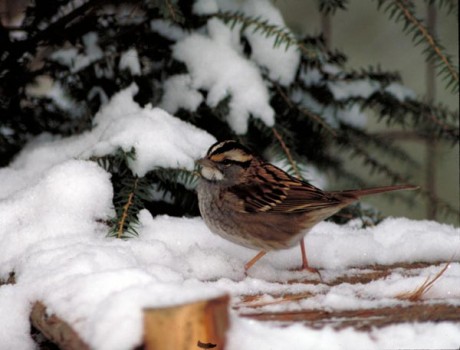‘Winterizing’ pets
Like people, critters need increased care as the mercury drops
When the weather get colder, we bundle up our kids, prep our heating systems, and bring our vehicles to our local mechanic for service so they can withstand winter's temperatures. Yet all too often, people neglect to take basic steps to help their pets adjust to cold days and nights.
Pets are family members and belong with the family, says Betsy Saul, co-founder of petfinder.com. It is a part of their DNA, by virtue of their domestication. As winter comes, we tend to shutter ourselves inside. Saul encourages people to bring in dogs who are outside in yards.
Other hazards that winter brings include the danger of a pet ingesting rat or mouse poison. (Mice tend to come inside a home when it gets colder.) Make sure any rat or mouse poisoning you use is not accessible to your pets.
Another danger Saul mentions: antifreeze poisoning. Animals love its taste but it can be fatal. If you are adding antifreeze to your vehicle, clean up any drips and spills right away, make sure caps are tight, and dispose of used antifreeze properly. You definitely don't want your pet ingesting any antifreeze, but you can choose to use antifreeze that has propylene glycol – it is generally considered less toxic than ethylene glycol. Check labels.
Saul points out that pets can suffer foot injuries from exposure to salt on sidewalks. Other de-icing compounds can also irritate paws, food pads and mouths. If you've added a de-icing compound to your walks and driveway, keep your pets away from these areas. And remove ice and snow from their paws after they've been outdoors.
Remember that many rules apply to both cats and dogs. You never want to leave either in a car during cold weather. By the way, cats and dogs need more protein if they are spending time outside, because they burn more calories to stay warm. For your pet chickens, put extra corn in their bowls.
Small animals are especially sensitive to fluctuations in temperature, notes Saul. Dry air from our heaters can be much too dry for reptiles and indoor birds. Reptiles are also very sensitive to drafts. All reptiles need to have a heat lamp that they can snuggle under and plenty of exposure to sunlight or a sun lamp, she says.
For wild birds, heated water dishes are available so that they have constant access to fresh, clean water. Similar heaters are available for birdbaths as well.
-
Share this story:



